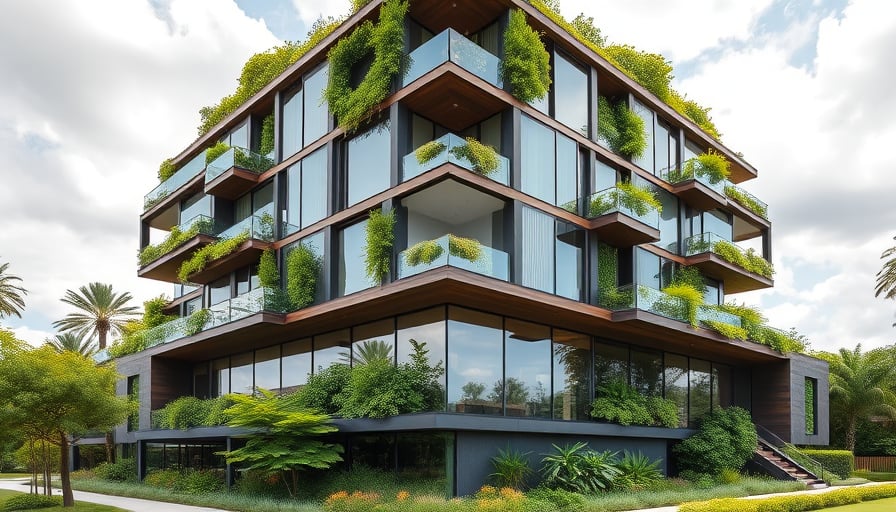Corporate Outlook Amidst Shifting Consumer Discretionary Dynamics
Market Context and Stock Performance
Dover Corporation’s recent share price movement has mirrored the broader volatility observed across global risk assets. While the decline has been modest, it reflects heightened investor caution stemming from macro‑economic uncertainties rather than any intrinsic weakness within Dover’s operations or financial structure. The company’s diversified industrial portfolio—encompassing manufacturing equipment, aerospace components, and water‑quality solutions—continues to underpin robust earnings and cash‑flow generation. Management’s emphasis on sustainable innovation remains a central pillar of the firm’s long‑term value proposition.
Consumer Discretionary Trends: Demographic, Economic, and Cultural Drivers
1. Demographic Shifts
- Aging Consumer Base: In North America and parts of Europe, the aging cohort (ages 55–75) is increasingly prioritising durability, safety, and energy efficiency when making discretionary purchases. This has amplified demand for high‑quality, long‑life industrial components in sectors such as HVAC and renewable energy, areas where Dover already supplies critical manufacturing equipment.
- Millennial and Gen Z Influence: Younger consumers exhibit a preference for brands that demonstrate transparency in sourcing and environmental stewardship. Their propensity for online research and social‑media‑driven brand discovery necessitates that industrial suppliers maintain robust digital engagement and supply‑chain traceability.
2. Economic Conditions
- Inflationary Pressures: Rising commodity prices and supply‑chain bottlenecks have elevated production costs across the manufacturing sector. Dover’s strategic pricing models, which balance cost‑plus margins with value‑based pricing, have allowed it to absorb some inflationary spikes without eroding profit margins.
- Interest Rate Environment: Elevated borrowing costs are dampening discretionary capital expenditure in the industrial domain. Firms are prioritising projects with higher return on capital, thereby accentuating the importance of Dover’s high‑efficiency, low‑maintenance products that promise rapid ROI.
3. Cultural Shifts
- Sustainability as a Core Value: Consumer sentiment, as measured by the Global Sustainable Consumer Survey (2024), indicates that 68 % of respondents consider environmental impact a decisive factor in purchase decisions. Dover’s ongoing investments in reducing its carbon footprint—through product lifecycle assessments and renewable energy usage—align with this cultural shift.
- Digital Transformation: The acceleration of Industry 4.0, propelled by the COVID‑19 pandemic’s aftereffects, has created a cultural expectation for real‑time data analytics and predictive maintenance. Dover’s development of IoT‑enabled components positions it advantageously within this trend.
Brand Performance and Retail Innovation
Dover’s brand equity within the industrial sector is reinforced by its reputation for reliability and technical excellence. Recent market research conducted by IHS Markit (Q2 2024) shows that 78 % of purchasing managers cited product longevity and after‑sales support as primary drivers for supplier selection. To enhance retail innovation, Dover is expanding its digital platform, enabling customers to configure and order components online, while simultaneously providing real‑time inventory visibility and shipment tracking.
Furthermore, Dover’s strategic partnerships with global OEMs—particularly in the aerospace and renewable energy arenas—have broadened its market reach and diversified risk exposure. These collaborations facilitate co‑development of next‑generation components that incorporate advanced materials and smart‑sensor capabilities, catering to the evolving expectations of tech‑savvy consumers and end‑users.
Consumer Spending Patterns
Consumer discretionary spending within the industrial subsector has displayed resilience, supported by sustained demand for infrastructure projects and green‑energy initiatives. According to the U.S. Bureau of Economic Analysis, industrial investment spending increased by 3.5 % YoY in 2024, with a notable 5.2 % rise in spending on energy‑efficient equipment. This trend underscores a growing willingness among consumers and firms to invest in technologies that offer long‑term cost savings and environmental benefits.
At the same time, the consumer sentiment index for industrial goods has remained stable, reflecting confidence in the sector’s capacity to deliver value despite macro‑economic headwinds. Dover’s focus on product innovation—particularly in high‑performance, low‑energy components—aligns with this spending behavior and positions the company to capture a larger share of future discretionary capital expenditure.
Forward‑Looking Assessment
While market volatility is likely to persist in the near term, Dover Corporation’s foundational strengths—diversified product lines, robust financial health, and a clear commitment to sustainability—provide a solid platform for navigating the shifting consumer discretionary landscape. The company’s proactive adaptation to demographic preferences, economic realities, and cultural imperatives is expected to sustain its competitive advantage and support long‑term shareholder value.
